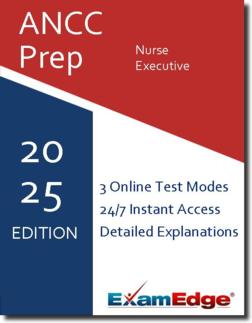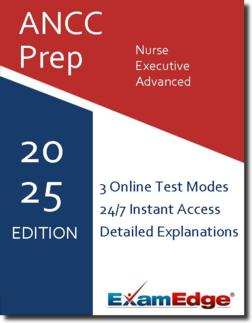
When choosing the next step in your career path, it’s important to understand the opportunities that are out there and what sets them apart. Sometimes, seemingly small details can make the biggest difference and change the entire trajectory of your career.
So, if you’re looking for ways to advance in your nursing career, knowing the differences between a nurse leader and a nurse manager is crucial to making the right decision for yourself.
We’re here to tell you everything you need to know so that there is no confusion and you have a clear image of what lies ahead.
Let’s get to it!
What Is a Nurse Leader?
There isn’t a universal definition of what a nurse leader is, as the role combines personal traits, tasks, and a deep understanding of the hospital organization where the nurse leader works.
Nurse leaders are incredibly perceptive and able to see how the current state of the hospital and its staff is affecting the future goals of the organization.
They are focused on the bigger picture, on guiding the staff toward achieving the collective goal, while managing day-to-day tasks, budgeting, and working on policy development.
What’s more, in crises, nurse leaders take on immense responsibilities to help make sure the hospital still runs smoothly.
These tasks aren’t just organizational.
Nurses have to create an environment of calm and trust among their colleagues which is achieved through a stoic yet compassionate demeanour.
All in all, nurse leaders are tasked with ensuring that the vision of the healthcare organization they work for is being followed and realized.
What Is a Nurse Manager?
It can be said that nurse managers have more of a hands-on job.
They oversee nursing units, divisions, and service lines.
Nurse managers have abundant contact with a wide range of staff, making them the perfect link between the administrative department and its vision and patient care.
Moreover, nurse managers have the task of bringing in and training new staff to meet the standard of care of the entire organization. They oversee scheduling and coordination among the nursing staff, sometimes within a certain unit, and sometimes in the entire healthcare facility.
Nurse Leader Vs Nurse Manager - The Main Similarities
From what we’ve discussed above, you can already draw some similarities and differences between nurse leaders and managers, but to make it simpler to compare, here are the main similarities between these two positions:
1. They Are Both Advanced Nursing Roles
Becoming a nurse manager or a nurse leader requires extensive nursing experience along with the right education and qualifications.
Most nurse management certifications require candidates to have several years of work experience and at least a bachelor’s degree.
2. They Are Essential in Keeping the Hospital Running
Nurses are often overlooked, both when it comes to patient treatment and hospital functioning. However, in both areas, nurses are pivotal. The same goes for nurse leaders and nurse managers.

They coordinate nursing units and hospital administration to create a productive environment where employees thrive and patients receive the best care.
3. Same Skillset and Qualities
While their tasks may differ, nurse leaders and nurse managers, both have some common traits and skills.
Both roles call for highly professional, experienced, resilient, and stable individuals.
They have to be good communicators, have organizational skills, and also be warm and caring to both their colleagues and the patients.
Nurse Leader Vs Nurse Manager - The Main Differences
By taking a look at the differences between these two positions, you can best get an idea of what each entails and what makes it special. So, let’s take a look!
1. Theory Vs Practice
As we’ve mentioned, both nurse managers and leaders can and do interact with patients and have lots of hands-on work.
However, nurse leaders are oriented more towards the vision of the healthcare facility, improving and furthering it, by keeping track of the innovations, newest regulations, and current trends. This way, they keep the hospital and its staff evolving for the betterment of the entire community
On the other hand, nurse managers are tasked with ensuring that the vision nurse leaders help set and develop, is fulfilled and executed. They oversee the daily activities and keep track of the duties the nursing employees must complete.
2. Salary
Even though these two jobs are somewhat similar, one of the biggest differences is the salaries. A nurse leader earns around $114,000 annually, while a nurse manager brings in about $95,000.
3. Qualifications
Nurse managers are typically required to have at least a bachelor’s degree, whereas nurse leaders usually have to hold at least a Master of Science in Nursing (MSN).
However, both can benefit from additional certifications, such as the ones offered by the American Nursing Credentialing Center (ANCC) - Nurse Executive Certification (NE-BC) and Nurse Executive Advanced Certification (NEA-BC).
Need Help Preparing For Nursing Exams?
When comparing the career paths of nurse leader vs nurse manager, it's essential to understand the unique responsibilities and skill sets required for each role.
Both positions offer rewarding opportunities for professional growth, but choosing the right one depends on your interests and career goals.
If you're looking for support to pass your nursing exams quickly, ExamEdge has you covered. We provide NE-BC practice tests and NEA-BC practice tests in a convenient format designed to help you succeed.
Start practicing today!
Related Practice Tests
Blogs related to: Nurse Leader vs Nurse Manager: Key Differences & Career Paths






Becoming a Family Nurse Practitioner (FNP) is a challenging yet rewarding career path. It requires advanced education, extensive clinical experience, and successful completion of a certification exam. There are two nationally recognized organizations that offer certification exams for FNPs: the American Nurses Credentialing Center (ANCC) and the American Association of Nurse Practitioners (AANP). In this blog, we will discuss the differences between these two exams, which certification is most looked for in the industry, and the best way to prepare for the exam.


















 ANCC Nurse Executive
ANCC Nurse Executive ANCC Nurse Executive - Advanced
ANCC Nurse Executive - Advanced
